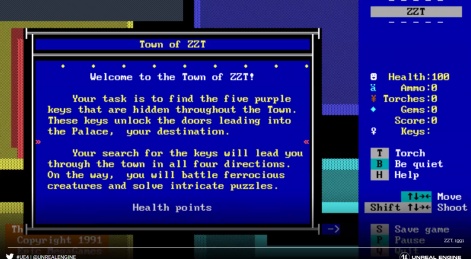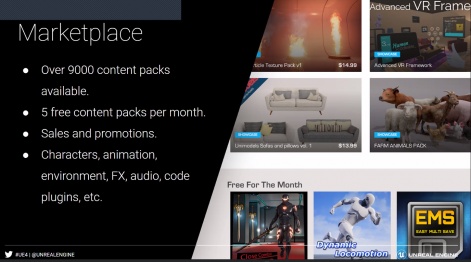As part of the first Pocket Gamer Connects Digital event, Epic Games senior engine evangelist Alan Noon hosted a talk on how Unreal Engine works to support creators and developers.
During the talk, Noon ran through a brief history of Epic Games and how it came to be, as well as a rundown of all of its flagship titles and releases leading from its first shareware in 1991, all the way up to Fortnite.
He also dipped into the Epic Games store and how it is set up to benefit developers, and gave an insight into all of the resources Epic and Unreal can offer during the development process.
An Epic history
Epic Games was founded as Potomac Computer Systems in 1991, in the basement of company CEO, Tim Sweeney. The company was then renamed to Epic Mega Games as Sweeney thought it "sounded big".
The company's first offering was ZZT, an adventure-puzzle game that first shipped out in October 1991. The next notable release was Unreal Tournament in 1998 which shipped with tools that enabled anyone to start modding.
"Players became modders and were taking steps to become bonafide developers," Noon explains.
"Aspects that were traditionally handled by developers could now be handled by anyone."

Unreal ecosystem
Throughout the talk, Noon emphasises that Epic's focus on sharing tools that everyone can use has been at the forefront since the company began.
"Games can now be made without a single line of code, meaning anyone can be a developer," he states.
"As we go out there and visit different studios, we're constantly asked what is the secret sauce that we're holding back." There are no secrets. If you wanna know what's in the engine, just look at what's in Fortnite and it'll come to the engine shortly after.
"From the beginning of Epic, sharing tools and knowledge has been part of the company DNA."
Perfect partners
A notable portion of Epic Games is now dedicated to publishing, which Noon ran through next. Notable points included fully-funded projects, which sees Epic cover up to 100 per cent of developments, ranging from market and distribution expenses through to paying staff wages. Once costs are recouped, the profits are split 50/50 between Epic and the other party.
This leads Noon into discussing the Epic Games Store and the high cut that it offers companies and developers that sell through it.
"The 70/30 split is not a reasonable cut in today's market," Noon says.
"All developers earn 88 per cent on the Epic Games Store, whereas developers on Steam only earn up to 70 per cent."
And a sizeable cut of profits isn't all Epic Games can offer. Given the company's huge success in recent years spearheaded by is current flagship title Fortnite, Epic now has a chunky $100m fund that it hopes to inject into several independent development projects over the next five years.
This fund is not designed to see companies through the entire development process, but to serve as a financial boost to allow smaller devs to get over certain hurdles.

Updates and future plans
To conclude, Noon jumped into Epic's Online Services and how they work to support developers. The platform currently offers game analytics and a ticketing system, but aims to expand in the coming months to offer player reports, data storage, in-game achievements and leaderboards.
Epic also hopes to offer an in-game overlay and additional communications tools, such as the ability to create chat parties.
Finally, Noon explained Unreal Indies, a project set up to support and assist independent developers throughout their process. The resource offers advice and actionable help to indies in areas such as asset management and branding, through to funding, releasing and tracking royalties.
PG Connects Digital #1 is the best of our Pocket Gamer Connects conference in an online form, with an entire week of talks, meetings, and pitch events taking place from April 6th to the 10th. You can read up on all the tracks taking place through the week here.













